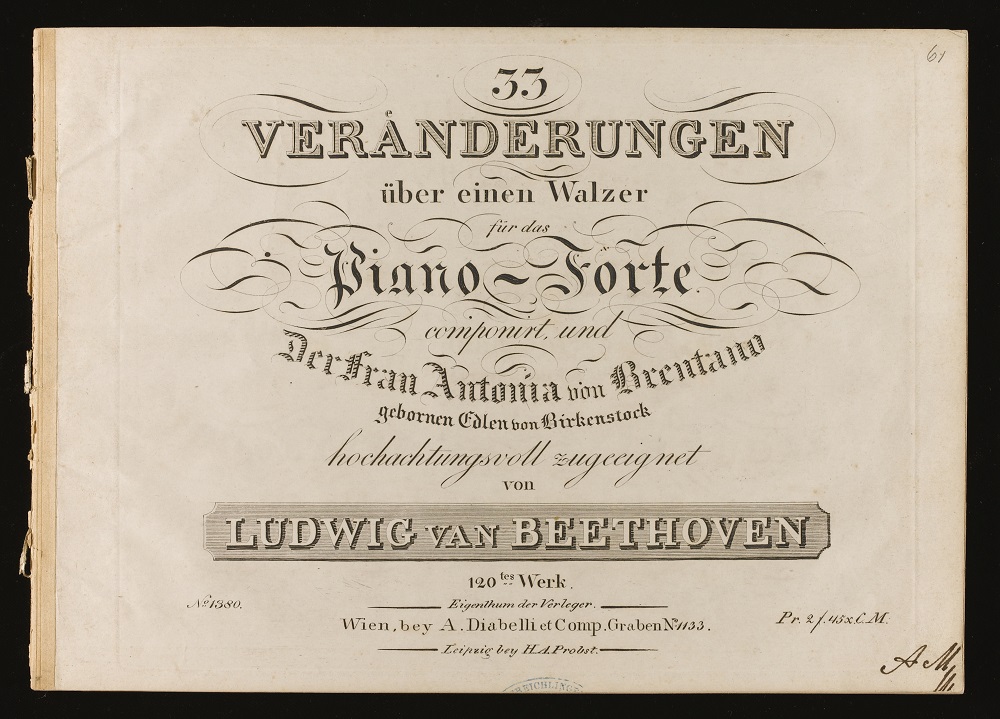Imogen Cooper, Wigmore Hall review – Viennese schools refreshed | reviews, news & interviews
Imogen Cooper, Wigmore Hall review – Viennese schools refreshed
Imogen Cooper, Wigmore Hall review – Viennese schools refreshed
Rare refinement enhances originality in Haydn, Schoenberg and late Beethoven

In the right hands, the music of the various Viennese Schools can still sound almost startlingly original. Imogen Cooper’s are very much the right hands, containing a rare, refined artistry that only continues to grow with the years.
Cooper opened with the Beethoven Bagatelles - aphoristic little pieces in which the composer toys with fragmentary notions of what music can be, whether poetic or insistent, lyrical or obsessively rhythmic: Cooper's playing emphasised the concentrated and differentiated character of each and every one, however brief.
The Schoenberg Six Little Pieces Op. 19, which followed, are tortuous slivers of atonality, often introverted or claustrophobic in atmosphere. They date from 1911 - extraordinary to think they predate The Rite of Spring - and though some can seem chewy, unlovable pieces, Cooper managed to infuse them all with affection despite their febrile intensity, the final Sehr langsam, associated with Mahler’s funeral, being tragedy distilled. From there, a segue straight into Haydn’s C major Sonata plunged us into the very opposite world, Cooper bringing out the rays of sunshine that dart through the composer's trademark wit and clarity.
Cooper has developed strikingly over time: her insights are continually deepening, expanding and extending. The influence of her one-time mentor, Alfred Brendel, is nevertheless still palpable, whether in her strong-centred, cool-headed sense of line or even in some of the gestures she uses: a quick shake of the head or laconic lift of eyebrows, or the conclusion of the Haydn’s genial finale, with a wry smile and immediate turn to the audience.  Though a lifelong Beethovenian, Cooper has been performing the Diabelli Variations for less than a year, so perhaps it’s no wonder she decided to play from the music (something that bothers me not a jot, even if others might disagree for reasons of their own). Masterpiece, monster or both, this work remains one of Beethoven’s ultimate challenges to any pianist, and Cooper’s performance grew better and better as it went along - not that the beginning was anything to grumble about, but the expressive peak was Variation 31 in which the right hand expounds an intricate aria that delves into emotional worlds impassioned, mystical and despairing at the same time. Cooper’s legato here transformed the piano into a Lieder singer of superhuman powers; and such is her ability in polyphonic playing that often through the course of the work one could hear how close some of the writing is to that in the composer’s late string quartets. The culminating fugue powered along, indomitable, before the final moment of anguish that ushers in a last, transcendental minuet. This was expertly shaped and finally left us hovering in mid air, almost scared to breathe.
Though a lifelong Beethovenian, Cooper has been performing the Diabelli Variations for less than a year, so perhaps it’s no wonder she decided to play from the music (something that bothers me not a jot, even if others might disagree for reasons of their own). Masterpiece, monster or both, this work remains one of Beethoven’s ultimate challenges to any pianist, and Cooper’s performance grew better and better as it went along - not that the beginning was anything to grumble about, but the expressive peak was Variation 31 in which the right hand expounds an intricate aria that delves into emotional worlds impassioned, mystical and despairing at the same time. Cooper’s legato here transformed the piano into a Lieder singer of superhuman powers; and such is her ability in polyphonic playing that often through the course of the work one could hear how close some of the writing is to that in the composer’s late string quartets. The culminating fugue powered along, indomitable, before the final moment of anguish that ushers in a last, transcendental minuet. This was expertly shaped and finally left us hovering in mid air, almost scared to breathe.
Cooper’s sound has grown with the years, too – deeper, richer and more voluminous – and perhaps this performance would have fitted even better in a larger hall than the Wigmore, which can sometime turn boxy for a sizeable piano tone, however beautiful the latter remains. I look forward to hearing her play the Diabellis again in a few years' time to see where she goes from here. It's already a tremendous achievement.
rating
Share this article
The future of Arts Journalism
You can stop theartsdesk.com closing!
We urgently need financing to survive. Our fundraising drive has thus far raised £49,000 but we need to reach £100,000 or we will be forced to close. Please contribute here: https://gofund.me/c3f6033d
And if you can forward this information to anyone who might assist, we’d be grateful.

Subscribe to theartsdesk.com
Thank you for continuing to read our work on theartsdesk.com. For unlimited access to every article in its entirety, including our archive of more than 15,000 pieces, we're asking for £5 per month or £40 per year. We feel it's a very good deal, and hope you do too.
To take a subscription now simply click here.
And if you're looking for that extra gift for a friend or family member, why not treat them to a theartsdesk.com gift subscription?
more Classical music
 BBC Proms: The Marriage of Figaro, Glyndebourne Festival review - merriment and menace
Strong Proms transfer for a robust and affecting show
BBC Proms: The Marriage of Figaro, Glyndebourne Festival review - merriment and menace
Strong Proms transfer for a robust and affecting show
 BBC Proms: Faust, Gewandhausorchester Leipzig, Nelsons review - grace, then grandeur
A great fiddler lightens a dense orchestral palette
BBC Proms: Faust, Gewandhausorchester Leipzig, Nelsons review - grace, then grandeur
A great fiddler lightens a dense orchestral palette
 BBC Proms: Jansen, Royal Concertgebouw Orchestra, Mäkelä review - confirming a phenomenon
Second Prom of a great orchestra and chief conductor in waiting never puts a foot wrong
BBC Proms: Jansen, Royal Concertgebouw Orchestra, Mäkelä review - confirming a phenomenon
Second Prom of a great orchestra and chief conductor in waiting never puts a foot wrong
 BBC Proms: Royal Concertgebouw Orchestra, Mäkelä review - defiantly introverted Mahler 5 gives food for thought
Chief Conductor in Waiting has supple, nuanced chemistry with a great orchestra
BBC Proms: Royal Concertgebouw Orchestra, Mäkelä review - defiantly introverted Mahler 5 gives food for thought
Chief Conductor in Waiting has supple, nuanced chemistry with a great orchestra
 Dunedin Consort, Butt / D’Angelo, Muñoz, Edinburgh International Festival 2025 review - tedious Handel, directionless song recital
Ho-hum 'comic' cantata, and a song recital needing more than a beautiful voice
Dunedin Consort, Butt / D’Angelo, Muñoz, Edinburgh International Festival 2025 review - tedious Handel, directionless song recital
Ho-hum 'comic' cantata, and a song recital needing more than a beautiful voice
 Classical CDs: Dungeons, microtones and psychic distress
This year's big anniversary celebrated with a pair of boxes, plus clarinets, pianos and sacred music
Classical CDs: Dungeons, microtones and psychic distress
This year's big anniversary celebrated with a pair of boxes, plus clarinets, pianos and sacred music
 BBC Proms: Liu, Philharmonia, Rouvali review - fine-tuned Tchaikovsky epic
Sounds perfectly finessed in a colourful cornucopia
BBC Proms: Liu, Philharmonia, Rouvali review - fine-tuned Tchaikovsky epic
Sounds perfectly finessed in a colourful cornucopia
 BBC Proms: Suor Angelica, LSO, Pappano review - earthly passion, heavenly grief
A Sister to remember blesses Puccini's convent tragedy
BBC Proms: Suor Angelica, LSO, Pappano review - earthly passion, heavenly grief
A Sister to remember blesses Puccini's convent tragedy
 BBC Proms: A Mass of Life, BBCSO, Elder review - a subtle guide to Delius's Nietzschean masterpiece
Mark Elder held back from blasting the audience with a wall of sound
BBC Proms: A Mass of Life, BBCSO, Elder review - a subtle guide to Delius's Nietzschean masterpiece
Mark Elder held back from blasting the audience with a wall of sound
 BBC Proms: Le Concert Spirituel, Niquet review - super-sized polyphonic rarities
Monumental works don't quite make for monumental sounds in the Royal Albert Hall
BBC Proms: Le Concert Spirituel, Niquet review - super-sized polyphonic rarities
Monumental works don't quite make for monumental sounds in the Royal Albert Hall
 Frang, Romaniw, Liverman, LSO, Pappano, Edinburgh International Festival 2025 review - sunlight, salt spray, Sea Symphony
Full force of the midday sea in the Usher Hall, thanks to the best captain at the helm
Frang, Romaniw, Liverman, LSO, Pappano, Edinburgh International Festival 2025 review - sunlight, salt spray, Sea Symphony
Full force of the midday sea in the Usher Hall, thanks to the best captain at the helm
 Elschenbroich, Grynyuk / Fibonacci Quartet, Edinburgh International Festival 2025 review - mahogany Brahms and explosive Janáček
String partnerships demonstrate brilliant listening as well as first rate playing
Elschenbroich, Grynyuk / Fibonacci Quartet, Edinburgh International Festival 2025 review - mahogany Brahms and explosive Janáček
String partnerships demonstrate brilliant listening as well as first rate playing

Add comment